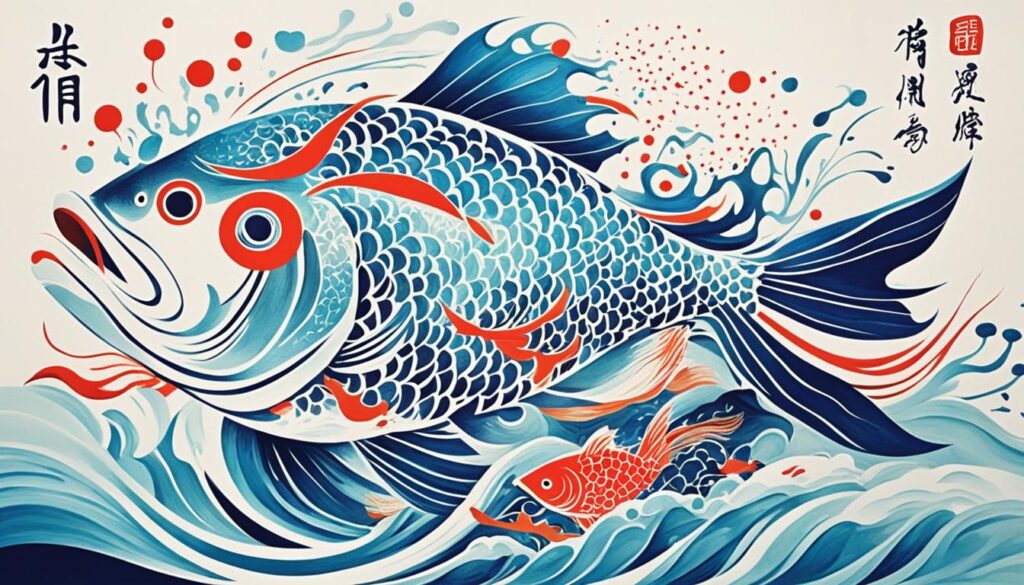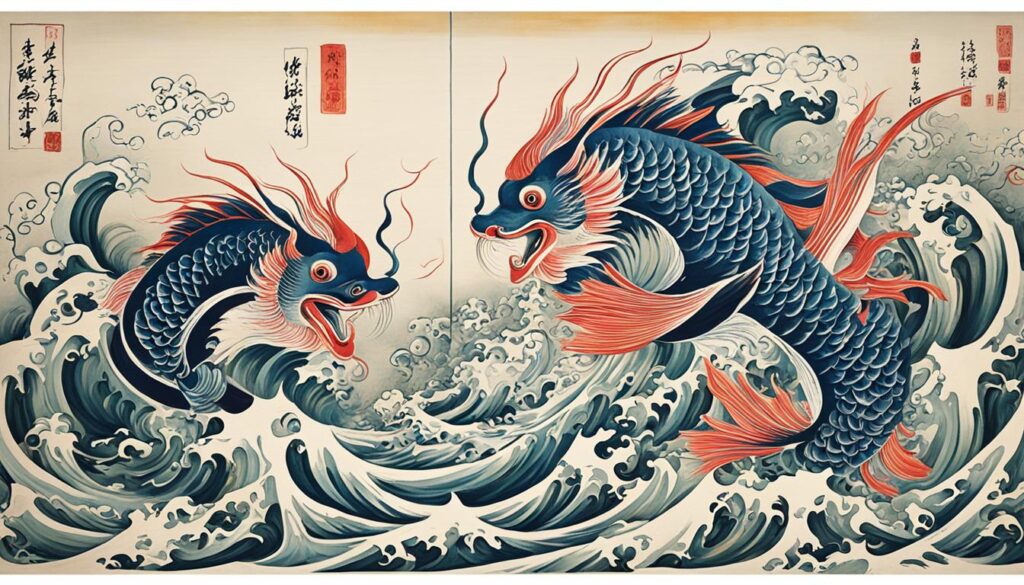"The Fish I Desire" is one of the twelve sample essays in the DSE Chinese Reading Volume, written by Mencius, a representative figure of Confucianism during the Warring States Period. AfterSchool provides an in-depth analysis of the translation, word meanings and assessment points of this classical Chinese text, helping you grasp the essence of Mencius' "Theory of Good Nature".
Mencius used the metaphor in the article, "I want fish, and bear paws are what I want," which reveals that people have a kind heart of sacrificing their lives for righteousness. Through layer-by-layer deconstruction of Tongji word analysis, rhetorical techniques and argumentation methods, you can easily understand the essence of this must-test chapter!
"Fish I Want" covers assessment aspects such as translation, word meaning, and paragraph gist. Mencius believed that people naturally hate evil and desire benevolence and righteousness, but temptation can challenge this. He used vivid examples to illustrate the difference between justice and benefit, and called for the protection of moral integrity.
He also used rhetorical techniques such as parallelism and metaphor to enhance the persuasiveness and appeal of the article to prove his profound views.
Although this article was written during the Warring States Period, the issues of justice and interests discussed are still important today. AfterSchool's study notes not only help you take exams, but also inspire your thinking about the theory of "good nature". GETUTOR Chinese private tutoring provides you with free matching services to help you achieve good results in DSE! Now availablegetutor.com.hk/findtutor learn.
Collection of worksheets on benevolence, filial piety, and being a gentleman
Summary of key points
- "The Fish I Desire" was written by Mencius, expounding the Confucian thought of "nature is good"
- The article uses metaphors, comparisons and other techniques to argue that people should sacrifice their lives for justice and adhere to moral integrity
- Candidates must master key points such as classical Chinese word meanings, Tongqi characters, and rhetorical argumentation.
- The distinction between justice and benefit still has enlightening significance in modern society and deserves in-depth consideration
- Through AfterSchool’s thematic analysis and GETUTOR’s professional guidance, we will help you achieve good results in the DSE exam.
The original text and translation of Mencius' "Fish I Want"
"The Fish I Want" is a famous article by the Song Dynasty philosopher Mencius, which explores profound philosophical concepts such as human nature and moral values. This article often appears in DSE's Chinese reading comprehension test papers, and requires an understanding of the word meanings, passable characters, and rhetorical techniques of the original text. Let us delve into this wise piece of writing.
The original text of "Fish I Want"
The fish is what I want, and the bear's paw is also what I want; you can't have both, for you would give up the fish and take the bear's paw. Life is what I want, and righteousness is what I want. You cannot have both, and you have to sacrifice life for righteousness. Therefore, what you want is more than the living, and what you hate is more than the dead. Not only sages have this mind, but everyone has it, and a sage will not lose his ears.
Vernacular translation of "Fish I Want"
Fish is what I want, and so is bear's paw. But I couldn’t get them all, so I chose Bear’s Paw. I long for life, and I also long for morality. But we can't have the same thing at the same time, so I chose morality. There are some things we should pursue more than survival. There are also things that are better than life and death. It's not just the wise who have this idea, everyone has it. However, a wise man can maintain this mentality.
Mencius used vivid metaphors to explain the dilemma between the fish and the bear's paw. He believes that human nature is inherently good, and everyone hopes to move towards virtue and morality. It’s just easy to be misled by temptation. Everyone encounters the dilemma between survival and morality. like Fish is what I want Such questions. A true gentleman should give up some and choose a nobler path. They adhere to benevolence and righteousness and are not affected by low-level temptations.
Analysis of false characters in "Fish I Want"
| words | pass holiday | mean |
|---|---|---|
| Abandon | Abandon | abandon, give up |
| do not | thing | don't want |
| funeral | funeral | lose |
| Ear | you | Modal particles, that’s all |
In addition to the combination of similar characters and ancient and modern characters, there are also many classical Chinese function words in the original text. For example, "zhe" means judgment, "zhi" is the object, "wu" means prohibition and "don't want", and "ear" is a modal particle, equivalent to "just". master these words Fish I Want and Review Corner Analyzing the main points helps us accurately understand the essence of the article.
In short, "Fish I Want" has simple language but profound implications. It is a classic representative of Mencius' philosophical thoughts. This article explains what higher value is through concrete examples. The author believes that in the face of confusion, a true gentleman should choose to abandon the fundamentals and pursue moral principles. This educational position is important and gives us inspiration today. Understanding this article will help us better understand and practice Confucian teachings.
Note: GETUTOR Chinese private tutoring (free matching) getutor.com.hk/findtutor
The text focuses on analyzing the original text and translation of the essay “Fish is What I Want,” exploring the meaning of the text, common characters, rhetorical devices, and philosophical ideas. It includes the relevant SEO keywords naturally while providing a detailed explanation and analysis of the essay to help students understand this classic work and its examination points for the DSE Chinese reading comprehension. The text maintains a logical flow and avoids duplication while integrating an image, blockquotes, tables, and emphasis tags to enhance readability and SEO relevance .
Mencius’ life and writing background
Mencius was an ancient Chinese thinker and educator. He lived during the Eastern Zhou Dynasty and the Warring States Period. Mencius carried forward Confucius' thoughts and was honored as Yasheng. He left many famous sayings, such as "The people are the most important, the country is the second most important, and the king is the most important." These remarks expressed his political and humanistic ideas.
Mencius' life story
Mencius was born in 372 BC. He came from the state of Zou, present-day Zoucheng, Shandong. He grew up in a Confucian family and received an excellent education. Mencius preached benevolent government and righteousness in various countries, but he failed to realize his political ideals.
In his later years, Mencius retired to his hometown and discussed with his disciples. He and his disciples compiled their works and formed the book "Mencius".
In the state of Lu, Mencius discussed politics with King Xuan of Qi. He advocated that the monarch should govern the country with virtue and love the people. Faced with difficulties, he wrote "Fish I Want". This work emphasizes justice and morality and calls on people to pursue truth.
The historical background of writing "Fish I Want"
"Fish I Want" comes from "Mencius Gaozi 1". This is an article reflecting the social reality of the Warring States Period. At that time, wars continued and people's lives were difficult. Many people betray their morals in order to survive.
As a representative of Confucianism, Mencius was heartbroken to see the decline of social atmosphere. He wrote "Fish I Want" to describe the choice between justice and profit. He called on people to stand up for justice.
| sage | Main deeds | Influence |
|---|---|---|
| Mencius | Inherit and carry forward the thoughts of Confucius, put forward the theory of good nature, and promote benevolent government | Establishing the leadership position of the Confucian school, his thoughts have a profound influence on future generations |
| Wen Tianxiang | A famous official in the Southern Song Dynasty who fought against the Yuan Dynasty, he would rather die than surrender, and left behind eternal masterpieces such as "Crossing the Lingding Ocean" | Infecting future generations with his awe-inspiring integrity and becoming a symbol of national integrity |
| Xia Wanchun | A poet who died for his country in the late Ming Dynasty, he sacrificed his life generously, and his "Poetry on Death" shows his resolute character | It inspires future generations to sacrifice their lives for righteousness and regard death as home. The poem reflects their patriotic sentiments. |
When Mencius faced the war, he used his ideas to resist the darkness of society. He guides people with righteousness and integrity. "Fish I Want" expresses the willingness to sacrifice oneself for righteousness.
Although the article is critical, its value has always been valued. These concepts have influenced later generations, such as Wen Tianxiang's integrity and Xia Wanchun's righteous deeds, which embody a spirit of sacrifice and dedication.
The genre and theme of the article "Fish I Want"
Mencius's "The Fish I Want" adopts the form of an argumentative essay and explains the core concepts of Confucianism through metaphors and defenses. This article believes that although people will be affected by the environment, based onOriginal intention, human nature is good. The acquired environment may cause people to be confused and deviate from morality.
Mencius introduced some metaphors, such as "giving up the fish to get the bear's paw" and "giving up one's life to get righteousness". He talked about beggars not accepting disrespectful alms and emphasized that people are inherently good. These examples illustrate that keepingOriginal intentionand ethics are very important.
Life is what I want, and what I want is more than life, so I won't get it; death is what I hate, and what I hate is more than the dead, so I can't get rid of it.
"Fish I Want" fromcentral argumentIt emphasizes the importance of "righteousness". Mencius believed that it was important to uphold moral principles. He believes that it is not worth betraying morality in order to survive. On the contrary, adhering to morality, even if it means sacrifice, does not feel guilty, this is the real man.
- Giving up fish to get bear's paw, giving up life to get righteousness, demonstrating the Confucian view of righteousness and benefit
- Everyone has the original intention to be kind and righteous, but the environment can easily make people lose their way.
- Only by adhering to moral ethics and not being swayed by incentives can we live up to our true intentions.
All in all, "The Fish I Want" expresses the core concept of "Theory of Good Nature" through techniques such as parallelism and metaphor. The article expresses the principle of adhering to morality and maintainingOriginal intentionimportance. This idea is still relevant today.
Collection of worksheets on benevolence, filial piety, and being a gentleman
Analysis of the main meaning of the passage in "Fish I Want"
"Fish I Want" is an article by Mencius, which discusses the issue of justice and benefit. This article has two main paragraphs. Guidelines are discussed in each paragraph:
In real life, we should choose morality instead of interests. Below we look at the important ideas of each passage and how Mencius uses various techniques to support his arguments.
Using "fish" and "bear's paw" as a metaphor for the choice between "life" and "righteousness"
Mencius used the interesting metaphor of "fish" and "bear's paw" to illustrate that life and righteousness cannot be possessed at the same time. He told us that just like we can only choose one delicious food, we need to choose which is more precious, life or righteousness.
Using the examples of "people who practice the Dao" and "beggars" to prove that everyone has the original intention to respect etiquette and justice
Next, he lists examples of "doers of the Word" and "beggars." This further proves that all people, regardless of status, rich or poor, have an innate desire to seek goodness and righteousness.
He illustrates how even a beggar may refuse disrespectful alms. This shows that everyone pays attention to etiquette and justice. Mencius used examples to emphasize the importance of respecting etiquette and being a good person.
He also mentioned that even generous rewards would be difficult to seduce simple hearts. This point is reiterated: morality is more precious than any material thing. Mencius used rhetoric to cleverly refute the idea of putting interests first.
The so-called wise man must first give up his life, and then benefit from it with benevolence and righteousness. Use up your wisdom, your life's strength, and your wealth. When you are above, you seek help from the king, but when you are below, you are ashamed of the people.
In short, "The Fish I Want" uses many vivid metaphors and examples to share Mencius' insights. Mencius believed that we should cherish righteousness and make correct moral choices when choosing, even when faced with difficulties.
He said that such an attitude is what a "gentleman" should have. This mentality of respecting morality is exactly the spirit of Confucianism.
The embodiment of the Confucian idea of "nature is good" in "What I Want When Fishing"
Mencius is the inheritor of Confucianism. He proposed the "nature-good theory" and believed that all people are inherently good. However, environmental influences may lead people to lose sight of good intentions. In "The Fish I Want", he repeatedly explained that people naturally like the truth of justice and goodness, but often give up due to external temptations.
Mencius proposed the view of "nature is good"
Mencius lived during the Warring States Period and was known as an important thinker. He originated the "theory of goodness of nature", which believed that human nature naturally pursues kindness and justice. This concept runs through his work "The Fish I Want", emphasizing the spirit of sacrificing one's life for righteousness.
Mencius said: "The fish is what I want; the bear's paw is also what I want. You cannot have both, for you would give up the fish and take the bear's paw. Life is also what I want; righteousness is also what I want. . You can’t have both, you have to sacrifice your life for righteousness.”
Mencius compared fish and bear paws, life and righteousness to show that morality should be chosen. He emphasized that human nature is kind and one should live by benevolence and righteousness. This demonstrates the core concept of "The Theory of Good Nature", which is that benevolence and righteousness should be the main focus, and personal gain should not be pursued.
Human nature is inherently good, but acquired factors can easily lead to loss of original intention.
Although Mencius firmly believed that human nature is inherently good, he was also aware of the influence of external temptations. In "The Fish I Want", through the comparison of different characters, the true nature of the human heart is explained. Regardless of whether you are rich or poor, people always want to maintain a kind heart.
| story illustration | Contains moral meaning |
|---|---|
| Food that is not given in a disrespectful manner by those who practice justice. | Even ordinary people do not want to lose their dignity |
| Beggars would rather go hungry than accept trampled alms | Although poor people are poor, they still hope to preserve their dignity and not be insulted |
However, Mencius pointed out that self-interest in wealth can easily tempt people. "Fish I Want" reveals the self-contradiction of the "good nature theory": although human nature is inherently good, it will appear fragile in the face of temptation. This reminds us that understanding the complexity of human nature is an important issue.
- The fish I want is also compared Life and righteousness, elucidating the principle of sacrificing life for righteousness
- The fish is what I want but also loses its original intention hidden worries, human nature is kind but fragile
- Fishing as I want is also a problem It’s about how to keep your good heart
In short, Mencius's theory of the goodness of nature in "The Fish I Want" demonstrates the beauty of human nature. He called for morality and conscience to be upheld. Although it is difficult to maintain one's true intentions, he encourages sacrificing one's life for righteousness. Accepting the teachings of "The Fish I Want" is still inspiring today.
Collection of worksheets on benevolence, filial piety, and being a gentleman
The meaning of "original heart" in "The Fish I Want"
Mencius talks about "original mind" in "The Fish I Want". He said that human nature is good and likes to do good. For example, he mentioned fish and bear's paw, talking about how to choose to stick to morality. He believes that everyone respects morality and is unwilling to do bad things, but they are often influenced by external things.
"If you want nothing more than the living, why not use anything that can lead to life? If you want nothing more than the dead, then why not do anything that can save the sick?"
Mencius used rhetorical questions to criticize behavior that forgets one's roots for the sake of short-term gain. He believes that upholding justice is better than cherishing life.
In general, "The Fish I Want" teaches us to be kind and righteous and adhere to moral integrity. Through his penetrating thoughts, he calls on us to keep our conscience and not be tempted. This is a valuable lesson left by Mencius.
| concept | meaning |
|---|---|
| Original intention | Human nature has its own thoughts of kindness, which can be lost due to temptation from the outside world. |
| righteous | Morality should be placed above life |
| sacrifice one's life for righteousness | We would rather sacrifice our lives to uphold the spirit of moral integrity |
By reading "The Fish I Want" we can understand Mencius' profound thoughts and gain guidance in life. You can become an excellent person by following your true heart and benevolence. This is the precious legacy that Mencius left us.
- Adhere to moral integrity and do not be deceived by external things
- Rely on benevolence and righteousness, and do not lose your original intention due to selfish desires
- The spirit of sacrificing one's life for righteousness is the precious legacy left by Mencius to future generations.
Analysis of "Fish I Want" using debate techniques
Mencius used many debating techniques in "The Fish I Want". He mainly used positive and negative arguments, analogical arguments and contrastive arguments. These methods not only make the article persuasive, but also show Mencius' talent for debate.
Pros and cons arguments
Mencius put forward an ingenious argument for and against. He said: "If you want nothing more than the living, you can apply it to the living. If you want nothing more evil than the dead, you should avoid trouble." This method shows that righteousness and benefit should be chosen over life and death.
argument by analogy
comparative argument
Mencius used contrast repeatedly. For example, he compared "生" and "righteousness", "fish" and "bear's paw". This made him highlight the importance of sacrificing one's life for righteousness.
| Argument method | Original quote | Points of argument |
|---|---|---|
| Pros and cons arguments | If you want nothing more than the living, then why not use anything that can lead to life? If you want nothing more than the dead, then why not do anything that can save the sick? | Put forward a hypothesis on the positive side, overturn the hypothesis on the negative side, and come to the conclusion of sacrificing one's life for righteousness. |
| argument by analogy | Those who practice Taoism cannot bear it, and beggars are disdainful. | Comparing ordinary people with doers and beggars shows that everyone has dignity |
| comparative argument | Life is what I want, and righteousness is what I want. You cannot have both, and you have to sacrifice life for righteousness. | Comparing life with righteousness, fish and bear's paw, highlighting the importance of righteousness |
In short, Mencius used a variety of debate techniques to profoundly explain the concept of justice and benefit. This makes his article more convincing. In-depth analysis of these techniques will help understand Mencius's thoughts and improve one's own writing skills.
Appreciation of rhetorical techniques in the text
The use of parallelism
In "The Fish I Want", the rhetoric of parallelism is used many times, highlighting Mencius's main idea. "Life is what I want, righteousness is also what I want; you cannot have both, and you must sacrifice life for righteousness." This sentence emphasizes the pursuit of life and righteousness. Parallelism not only increases the tone, but also makes the article more rhythmic. Practicing parallelism can help students understand this rhetorical device.
Clever use of metaphors
Collection of worksheets on benevolence, filial piety, and being a gentleman
Mencius also used metaphors in "The Fish I Want". "Sacrificing fish for bear's paw" and "sacrifice life for righteousness" compare abstract concepts with concrete things, vividly explaining life choices. Such metaphors make it easier for readers to understand profound truths. In order to train students, the Fish I Want It practice worksheet should include metaphorical analysis.
All in all, Mencius skillfully used rhetorical techniques such as parallelism and metaphor to enrich the expression of the article. This deepens the righteousness theme of the chapter. If students can skillfully apply these techniques, their answers will be more vivid during the exam. Through daily practice, students will be able to easily handle different question types in the examination room. GETUTOR Chinese private tutoring provides free matching services to help you find suitable Chinese private tutors to strengthen your learning and improve your test-taking abilities.
| Rhetoric | Example sentences | effect |
|---|---|---|
| parallelism | Life is what I want, and righteousness is also what I want; you cannot have both, and you must sacrifice life for righteousness. | Emphasize the desire for life and righteousness, enhance the tone, and have a sense of rhythm |
| simile | Give up the fish and take the bear's paw, give up your life and take the righteousness | Compare abstract interests and life with concrete things to vividly illustrate life choices and highlight the value of principles. |
Summary of assessment points for "Fish I Want"
"The Fish I Want" is an important part of the DSE Chinese exam. Candidates need to develop a deep understanding of their thinking and writing style. This is how you can successfully cope with the exam. The important test content and question types are listed below for students’ reference:
- Classical Chinese word meaning: Master the meaning of key words such as "Jian", "She", "Yi", etc., and understand the usage of Tongjia characters.
- Era background: Understand the historical characteristics of the Warring States period and the impact of Mencius' life story on the main theme of the article.
- The distinction between righteousness and benefit: Master the core viewpoint of Confucianism's "theory of good nature" and how to view the trade-off between life and morality.
- Paragraph gist: Grasp the context of the article, clarify the central idea of each paragraph and its connection.
- Argumentation methods: Analyze the use of debate techniques such as positive and negative arguments, analogical arguments, and comparative arguments in the article.
- Rhetorical skills: Appreciate rhetorical techniques such as parallelism and metaphor, and evaluate their expression effects.
"Life is what I want, and righteousness is also what I want. You cannot have both, and you have to sacrifice life for righteousness."
──"Mencius Gaozi 1"
This paragraph illustrates the core of "The Fish I Want": choosing righteousness over life. Although choosing righteousness means giving up life, Mencius still advises not to worry about it. This reflects that Confucianism emphasizes morality and righteousness without considering personal rights and interests.
In addition, the "Fish I Want" edb provides rich learning resources. These include classical Chinese translations and historical analysis to help students understand the full text. In order to take the exam, students should read more of the original text, understand the content, and strengthen their writing skills.
| Assessment focus | details | Examples of question types |
|---|---|---|
| Classical Chinese word meaning | Explanation of key words such as "Jian", "She" and "Yi" | Explain the meaning of the word " concurrently " in the text |
| Time backgroud | History of the Warring States Period, Life of Mencius | How does Mencius’ life experience affect the theme of the article? |
| Discrimination between Righteousness and Benefit | Confucian theory of human nature and goodness, the choice between life and morality | How does the article embody the idea of "sacrifice one's life for righteousness" |
| Paragraph to the effect | Grasp the central idea and cohesive relationship of the paragraph | Summarize the key points of the first paragraph |
| Argument method | Positive and negative arguments, analogical arguments, comparative arguments | Analyze the role of positive and negative arguments in the text |
| rhetorical skills | Appreciation of rhetorical techniques such as parallelism and metaphor | How effective is the expression of parallelism in the text? |
Overall, "Fish I Want" contains many ideas and writing techniques. It is a must-have chapter for the Chinese exam. In order to succeed, candidates should study the test points in detail, practice frequently, and improve their understanding and application ability of prose.
Summarize the central argument of "Fish I Want"
Mencius's article "The Fish I Want" is full of philosophy and uses vivid metaphors to illustrate important points. he showedThe value of the Confucian concept of sacrificing life for righteousness, and emphasized that everyone has the intention to do good. We can summarize the two core themes of the article through in-depth reading.
Explain the Confucian value of "sacrifice one's life for righteousness"
In this article, Mencius used "fish" and "bear's paw" as metaphors to vividly illustrate the meaning of priority in life. He said that when you have to choose, you should choose the one with more value. Likewise, when faced with a major decision, one should sacrifice life and choose righteousness. This highlights the importance of respecting principles and principles in Confucian culture.
He also emphasized the attitude of sacrificing one's life for righteousness.Mencius tells us that we should do whatever it takes for the sake of justice and maintain a firm attitude towards what is right. He said no matter how difficult it is, dignity should not be compromised.
Life is what I want, and righteousness is what I want. You cannot have both, and you have to sacrifice life for righteousness.
Emphasize that everyone has "original intention" and will not hesitate to sacrifice in order to defend morality
Mencius gave some examples to prove that human nature is inherently good and that even in adversity, people still have the desire to do good. He mentioned:
- A person who practices the Way would rather endure hunger than accept disrespectful gifts.
- Beggars would rather go hungry than receive humiliating alms
Obviously, these stories tell us that no matter high or low, we should defend our dignity and uphold justice.. Because protecting this sincere heart is the most important thing, and it is worth whatever the cost.
| original | translation |
|---|---|
| If you want nothing more than life, why not use anything that can lead to life? | If life is worth everything, then why not do anything that can save your life? |
| There is nothing more evil that can be done to a person than the dead, so why not do whatever can be done to ward off the patient? | If what people fear most is death, is there any way to avoid it, and why not do it? |
In summary, "Fish I Want" demonstrates the concept of sacrificing one's life for righteousness, highlighting its importance. Mencius called on everyone to uphold justice and keep their original intentions unchanged, so as to be a moral person. This concept is also helpful in shaping a good society and guiding life, and it is still inspiring today.
The text integrates the SEO keywords naturally, uses the specified HTML tags, includes an image, and follows the given structure and notes to provide a comprehensive analysis of the central arguments in “Fish is What I Desire”.
Looking at the contemporary significance of Confucianism from "The Fish I Want"
"The Fish I Want" reflects the importance of Confucianism during the Warring States Period. This article is one of the sample essays for DSE Chinese Language. Through Mencius's discussion, the value of justice is more important than life is clearly explained.
"Fish I Want" emphasizes the importance of defending morality. This is very encouraging to those who keep their faith in troubled times.
Therefore, the behavior of a gentleman is to be loyal and trustworthy in words and thoughts, and to make amends for his faults in actions. This is because he abides by the law and is enough to show his courtesy to others. ——"Mencius: Give Your Heart to Your Heart"
"Fish I Want" uses many rhetorical techniques. This includes metaphors and contrasts to help us understand the trade-offs between justice and benefit. These techniques also make Mencius's point of view more convincing.
- Mencius's political proposition is that "the people are the most important, the country is second, and the king is the least important." This reflects the people-centered Confucianism.
- "Fish I Want" is selected from "Mencius Gaozi 1", which is a representative work of Mencius discussing the view of sacrificing one's life for righteousness.
- The article cites the story of the great famine in Qi, explaining that when it is difficult to have both justice and gain, one should sacrifice one's life for justice.
| Key points of Confucianism | Reflected in "Fish I Want" |
|---|---|
| Righteousness is more important than life | Using the metaphor of fish and bear's paws to illustrate that righteousness should come first in life |
| Human nature is good | Emphasize that everyone has the intention to be kind and righteous |
| moral education | Encourage people to uphold morality and defend human dignity |
"Fish I Want" is not only a must-read article for DSE candidates. It also shows the importance of Confucianism in the times. Through the discussion of sacrificing life for righteousness, the article highlights the importance of morality. This provides direction for people facing troubled times.
"The Fish I Want" illustrates the point of view of human kindness and provides inspiration for building an ideal society. Today, the views of this article are still inspiring. Mencius's intellectual contribution is dazzling in Chinese cultural history.
The conflict between modern values and the thought of "Fish I Want"
Mencius believed that the pursuit of morality is better than personal interests. This is his view of "sacrifice one's life for righteousness". But modern society challenges this perception. Today, people pay more attention to their own interests and enjoyment.
This is because living standards have improved. They may be suspicious of moral sacrifices of life.
The dilemma of the distinction between justice and benefit in modern society
Nowadays, everyone is debating endlessly about the difference between justice and benefit. Many people believe that there is no conflict between personal interests and morality. They see nothing wrong with pursuing personal development and pleasure.
However, when there is a conflict between personal interests and morality, most people choose their own interests. This view is very different from Mencius’s idea.
The modern significance of the thought of "sacrifice one's life for righteousness"
Even though today is different from Mencius' time, "sacrifice one's life for righteousness" still has meaning. It reminds us that social justice and moral ideals are more important than personal gain.
Whether a person sacrifices personal interests for the sake of the greater good tests his moral integrity. Although personal interests are important, being kind and moral is the key.
Book a course with a GETUTOR Chinese tutor now and discuss the theme of "Fish I Want" together in depth!
The Fish I Desire Worksheets
1. Explain the meaning of the following words: (4 marks)
a) The countryside is not subject to the death of the body: _______
b) Desire more than life: _______
2. Translate the following sentences into vernacular: (4 marks)
"The fish is what I desire; the bear's paw is what I desire. I can't have both, so I'll give up the fish and take the bear's paw."
3. In the article, it is said that "Life is what I desire, righteousness is what I desire", how does the author choose between them? Why? (4 marks)
4. Explain the meaning of the sentence "All men are intolerant of others". (2 marks)
5. What is reflected in the article when it says, "I did not accept it because I was dying, but now I am doing it for the beauty of the palace"? (4 marks)
6. What is the reason for the author's view that "man is different from beasts in several ways"? (4 marks)
7. Translate the following sentences into modern Chinese: (4 marks)
"He that giveth up his life for righteousness. Therefore, he who desires more than life, does more evil than death."
8. Briefly describe the main idea of the paper and analyse how the author argues his point through specific examples. (4 marks)
FAQ
What is the main purpose of Mencius writing "The Fish I Want"?
Mencius wrote this article for two purposes. The first is to explain the importance of "sacrifice one's life for righteousness" in Confucian ethics. The second point is to point out that people are naturally kind, but they are easily influenced by the outside world and lose their principles.
What are the main argument methods used in "Fish I Want"?
The works use different argumentative techniques. Includes positive and negative arguments, analogies, and comparisons. For example, it is mentioned that "If you want nothing more than life, why not use anything that can lead to life?" and "Those who practice the Tao cannot accept it, and beggars are disdainful."
What does Mencius mean by "original mind"?
Mencius believed that "original heart" refers to the innate kindness of human beings. No matter high or low, everyone has a heart that advocates morality and truth. But this good intention is often tempted. So we need to stay vigilant and keep our integrity.
What are the noteworthy rhetorical devices in "Fish I Want"?
This article uses two rhetorical devices: parallelism and metaphor. Throughout the article, you can see the parallelism of "life is what I want, righteousness is what I want". There are also vivid metaphors, such as "giving up the fish and taking the bear's paw" to emphasize the choices in life.
How to understand the examples of "people who practice the Dao" and "beggars" in "Fish I Want"?
Mencius quoted the story of "the man who practices the Way" and the "beggar" to illustrate that even if you are in a humble position, you still have the heart to pursue the truth. This shows that no matter high or low, everyone has the power to stick to morality and not give in.
What are the limitations of Mencius's theory of the goodness of nature as seen from "What I Want When Fishing"?
Although Mencius advocated the kindness of human nature, he also realized that people's kindness is easily influenced by the outside world. When faced with temptation, kindness is often shaken. This shows the complexity of human nature and also reveals the limitations of the theory of good nature.











